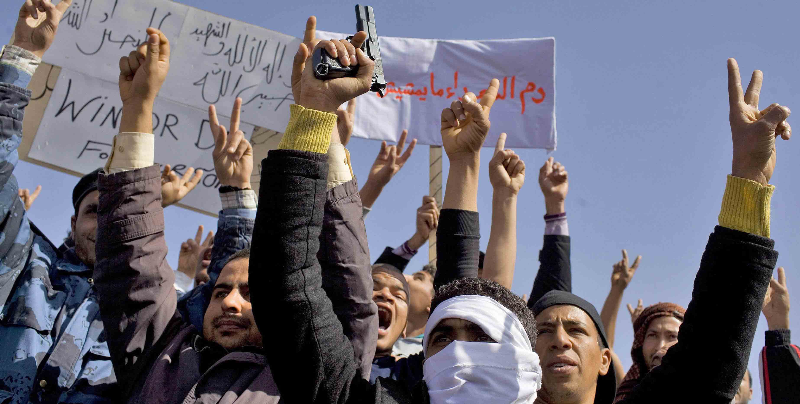On January 14, 2011, Ben Ali fled Tunisia after 23 years in power, signaling the end of the distorted regional order in the Middle East and North Africa.
Abstract
Over the past decade, Turkey has been experiencing a decisive transition that the North Africa and Middle East only recently has begun to feel. It will be misleading to interpret the changes in the Arab world as single and isolated developments taking place in each and every country.“Camp David Order”, that took shape after 1978, based on Western support for authoritarian Arab leaders, has dominated Middle Eastern affairs for the last three decades.The US invasion of Iraq intentionally or unintentionally agitated the dynamics of the regional order.Turkey has been seen as a success story for those countries suffering from a lack of democratization, economic development and distribution of income, and despised and oppressed by Israel.Just as Turkey had a role in the transformation of the Arab world, the Arab world will also play a significant role in the formation of the New Turkey. Turkey will remain an actor helping to build the order as long as it deploys its comparative, historical and strategic advantages in constructive politics.
The Arab Spring and Turkey: The Camp David Order vs. The New Middle East
On January 14, 2011, Ben Ali fled Tunisia after 23 years in power, signaling the end of the distorted regional order in the Middle East and North Africa. Demonstrations, which broke out after 26 year-old street vendor Mohammed Buazizi set himself on fire, have turned into a wave of change spreading from Yemen to Syria. Over the past decade, Turkey has been experiencing a decisive transition that the North Africa and Middle East only recently has begun to feel. Turkey’s September 12, 2010 referendum on partial constitutional amendments has become a milestone for the structural changes that was triggered by the 2007 national elections. While Turkey was going through a genuine debate on the “New Turkey” following the historic referendum, which put an end to the tutelage system, it now has engaged in yet another transformative debate on the emergence of the New Middle East.
The last decade in Turkey has witnessed transformations in several areas, laying the ground for discussions summarized as New Turkey, and has become a successful example of transition from an old order to a new one. On the domestic front, Turkey has accomplished significant improvements with regard to democratization. On the international front, Turkey has become more capable of taking independent initiatives, come ever closer to EU membership, redefined its relations with the Arab world, and made positive contributions towards the resolution of the Arab-Israeli conflict. These were the achievements that triggered a debate on a New Turkey at home and abroad. The Arab Spring has shown that the transformation Turkey has been going through is also needed in much of the Arab world, which was still reminiscent of the old Turkey.
The Arab Spring
It will be misleading to interpret the changes in the Arab world as single and isolated developments taking place in each and every country. What is at stake is a region where the defining features of regional countries, ranging from their names to their borders, were determined by Western powers after World War I. The regional order established following bloody interventions has been in place since then. After Israel was established in 1948 in the wake of World War II, the post-World War I arrangements were restructured in the Middle East. This revised post-World War II order was later replaced by the “Camp David Order” that took shape after 1978. This new arrangement, based on Western support for authoritarian Arab leaders, has dominated Middle Eastern affairs for the last three decades. This status quo positioned Israel at the center of regional relations, and in subsequent years has enabled regional dictator







